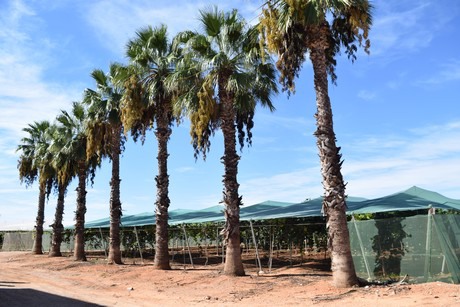
Not many know about the existence of kiwi crops in the province of Valencia, which is better known for products such as citrus fruits or kakis. Kiwis have not been grown in Valencia for very long and the production volume is still small, but the truth is that it offers great advantages at an organoleptic and commercial level. This is the second campaign in which the Valencian company Hispalco, based in Puçol, has bet on Valencian kiwis; a fruit that, for some producers, represents an alternative to citrus, and whose popularity is expected to grow in the coming years.
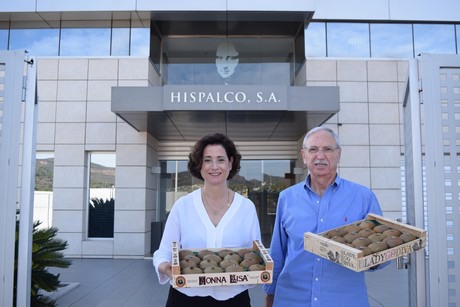 Ana and José Beltrán, CEO and manager of this family firm.
Ana and José Beltrán, CEO and manager of this family firm.
"We started marketing Valencian kiwis for the first time last year and we are delighted with their reception among our customers in Europe. Thanks to the climatic characteristics of Valencia, with its high humidity and fertile soil, the kiwis stand out at first sight for their spectacular caliber, and internally, for having a sweet core that is one hundred percent edible. Its flavor is very similar to that of the kiwis cultivated in New Zealand and in the north of Spain," say José Beltrán and Ana Beltrán, CEO and manager of Hispalco. "Also, the harvest starts around a month and a half before Italy, which gives us an interesting commercial window. All this leads us to think that it will be a growing crop in Valencia," they add.
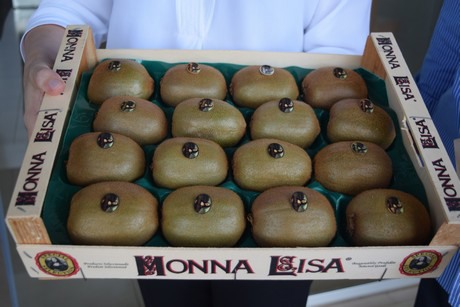
At the moment, the company is working with Hayward kiwis, which is the most common variety in the markets, although they are currently striving to reach agreements for the sale of other varieties, such as yellow kiwis and red-fleshed kiwis. Hispalco is able to supply kiwis from October, starting in Valencia, up until May, from origins such as Portugal, Italy and France.
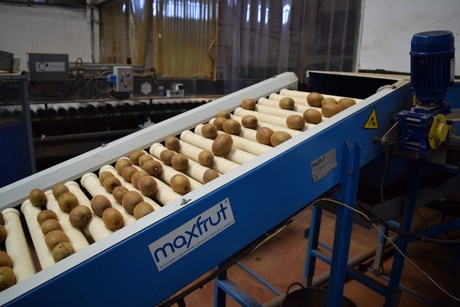
Given the currently growing concerns regarding welfare, health and environmental protection, Ana Beltrán says that one of the characteristics that makes kiwis most interesting is that it is a fruit that requires little, or even no treatments before and after the harvest, so it can be marketed as a zero waste product.
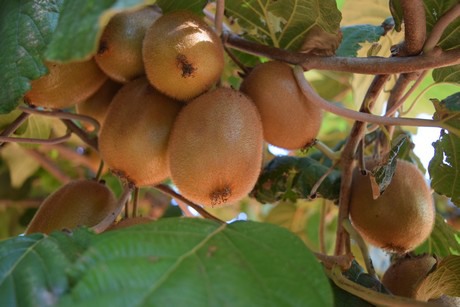
"Organic fertilizers can be used while the crop is growing, but above all, you need a fertile soil with plenty of water. Kiwis are already resistant to many pests due to their fuzzy skin, which makes them unattractive to parasites. Moreover, since they grow on vines and hang, they are virtually free of fungal problems," she explains.
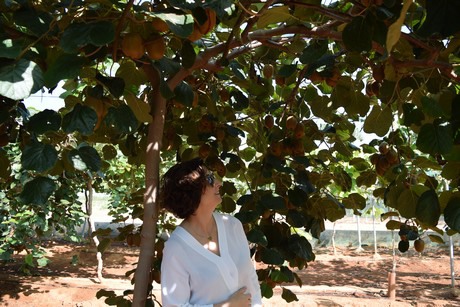
Unlike other Valencian crops, kiwis are harvested all at once and are then placed in storage (for up to 8 months without any problems) handled and marketed throughout the campaign.
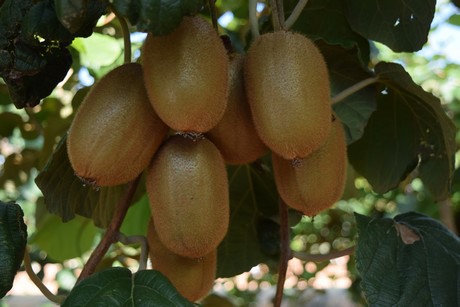
"The storage conditions are important. In conventional cold, harvested kiwifruit can be stored in chambers for up to five months with humidity levels of up to 90% and at a temperature oscillating between -0.5 and 0.5 degrees Celsius. With the use of controlled atmosphere, the fruit can be stored for up to 8 months," says José Beltrán.
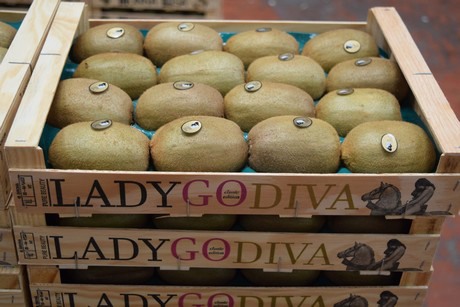
The Valencian firm sells its kiwis mainly in Germany, France, Italy and the countries of the Benelux.
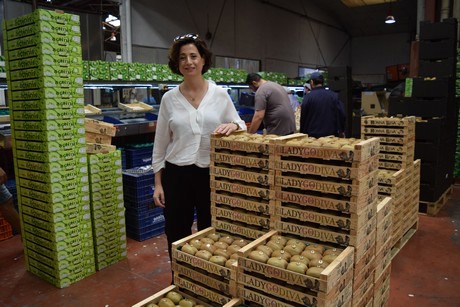
"We distribute mainly through wholesale markets, given that we promote our own brands, and we do not believe in the closed-program models of many retail chains. We are looking for suppliers that can offer us Premium quality in the whole range of fruits and vegetables. Although we sell directly to brand-oriented buyers, we also try to reach the final consumer through distinctive labeling and actions on social media. Our brand allows us to sell at higher prices than conventional products, which also translates into higher prices for the producers," says Ana Beltrán.
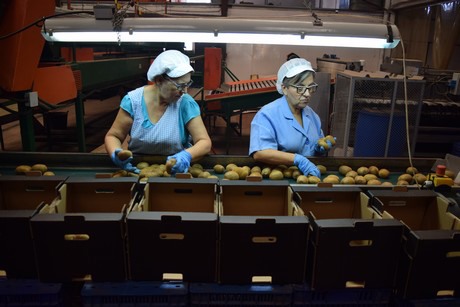
"For this reason, we are demanding with our suppliers, who know that you shouldn't store kiwis in the same chamber as other products, such as apples and pears, tropical fruits, bananas, melons, oranges, stone fruit, etc. This is because they release a lot of ethylene and consequently accelerate the ripening of the fruit, which can lead to problems and complaints at destination. We also make sure that our customers have good storage practices in place for the product, and that is why we ask them if they plan to sell quickly on arrival as 'ready to eat' or plan to store the fruit and sell it gradually in the following week or days. We have been work with clients for more than 20 years and they know that our policy is not that of 'the customer is always right.' Instead, we ask for their trust in order to obtain the best results," continues Ana Beltrán.
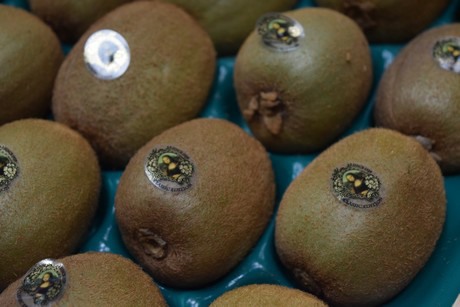
Hispalco packs its larger-caliber Spanish, Portuguese and French kiwis in wooden and cardboard boxes with 40x30 cm alveolus, instead of the usual 50x30 cm boxes usually found on the market. For the small calibers they use baskets and tubs and also sell in bulk.
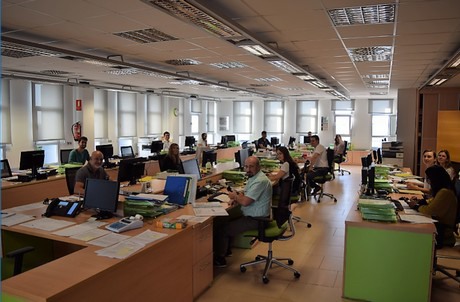
In the photo above, the sales department, and in the bottom one, the sales department devoted exclusively to Hilpasco's Bio products.
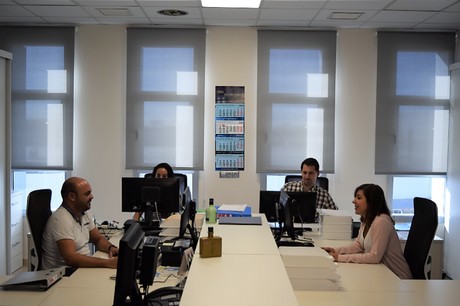
For more information:
Ana Beltrán
HISPALCO, S.A.
C/ Barranco Pascual, 45. Pol. Ind. Campo Aníbal.
46530 Puzol, Valencia. Spain.
M: +34606686319
T: +34 963404422
abeltran@hispalco.com
www.hispalco.com
